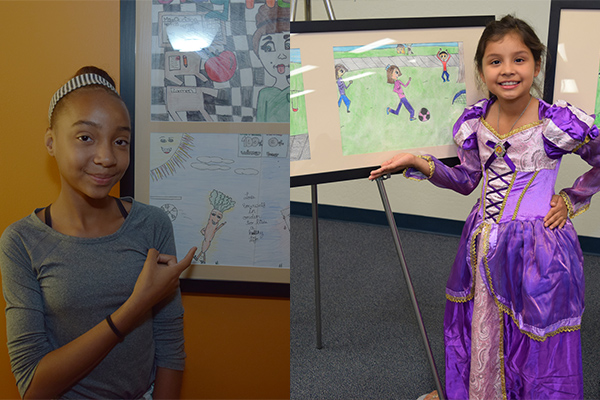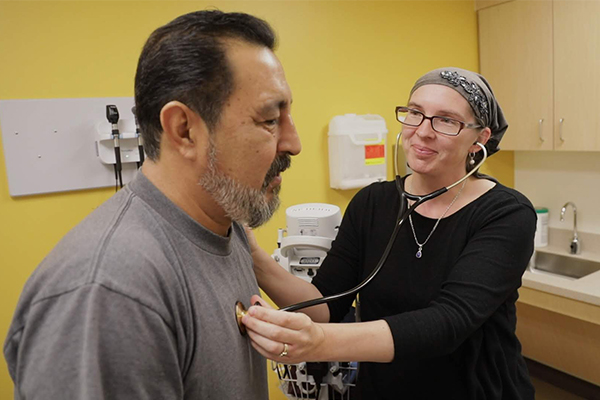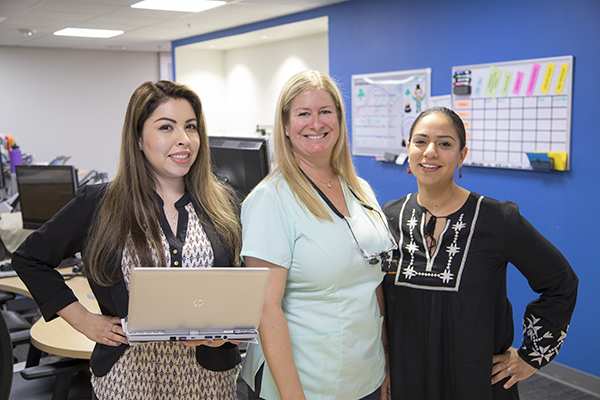January 28, 2017 | Clinics / Staff Stories
Removing Language Barriers
Trained healthcare interpreters have been shown to increase patient satisfaction and patient retention in healthcare facilities. In 2016, one-third of our scheduled appointments required language services, and Mountain Park employees have ensured that our patients received access to healthcare in 70 different languages. At Mountain Park, we pride ourselves on our growing Language Access Services and we are committed to helping our patients have the best experience in our clinics, no matter what language they speak.
Having a trained and impartial interpreter is key in providing patients the best care, while honoring confidentiality and privacy. Not speaking your doctor’s language should never prevent you from getting and staying healthy.
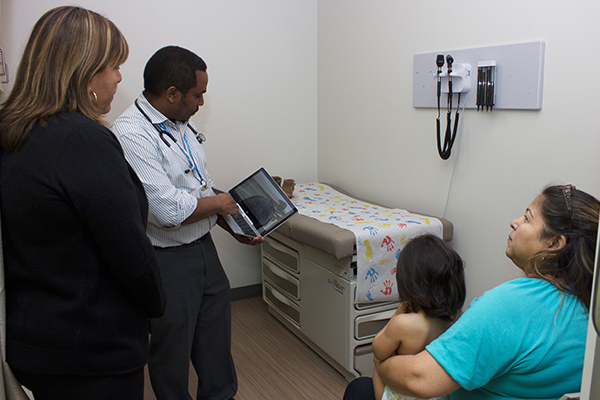
“We as interpreters are the helpers, the ones behind the scenes,” Araceli Wandachowicz, an interpreter in our Maryvale Pediatrics department, explained. “Our job is to interpret what the patient is saying to the provider and the provider to the patient. We are not allowed to stay in the room with the patient if a doctor isn’t there and we can’t give our two cents unless asked to do so.”
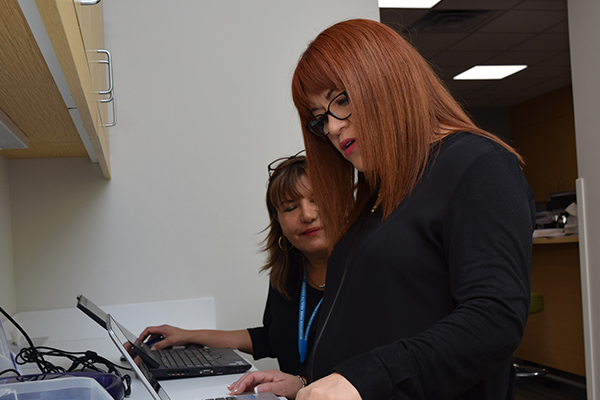
Currently, Mountain Park uses various interpreting methods including full-time medical interpreters for Spanish, bilingual/dual-role employees, over the phone interpreting, video remote interpreting, and onsite contracted interpreters. But the most efficient practice remains human contact.
“Having an interpreter in the clinic is definitely a plus. It’s more personal, not only for the patient but for our providers too,” Luz Torrez, Maryvale Family Medicine Interpreter, told us.
Having an interpreter not only strengthens relationships but helps everyone convey their message accurately.
“Being in the room with the patient is important because you also have the ability to monitor their body language,” Araceli added. “A patient can tell you that they are fine, but their body says otherwise. You not only interpret their verbal cues, but you see their feelings and reactions.”
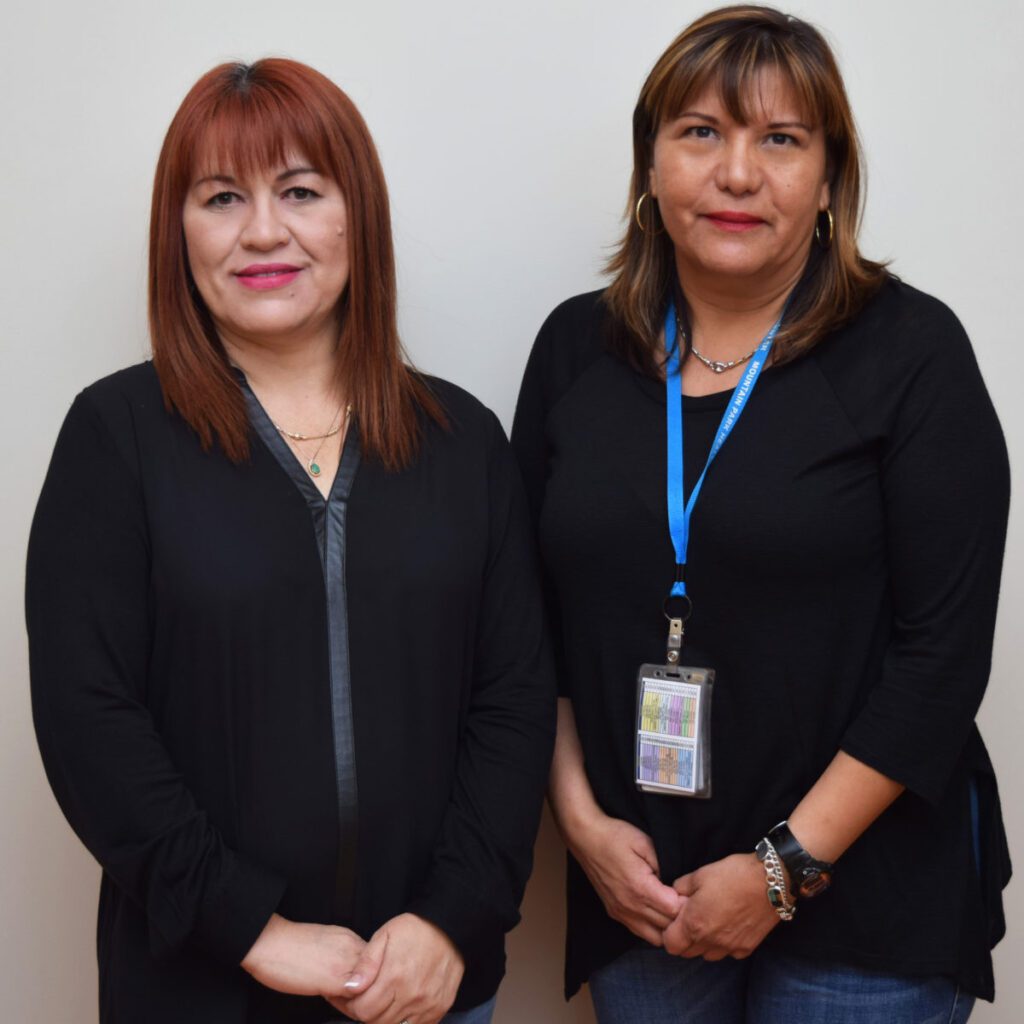
While we have many bilingual providers and dual role employees who can communicate with patients in Spanish, many other providers and staff members speak only English. Our interpreters and dual-role employees can step in and assist by interpreting.
“Using our interpreters allows us to provide much better care,” Rachel Prell, Family Nurse Practitioner at our Maryvale Clinic, told us. “The work that our interpreters do is so rewarding and helpful to all of us, but it can also be very exhausting for them. Their brains must constantly react to triggers because they are interpreting in one language and responding with another language. Their brains work differently than other peoples. I love having them on our team.”
Both Luz and Araceli enjoy what they do because they feel like they are making a difference in our patients’ lives.
“Our patients express such gratitude when they come in and know that they have someone to communicate with,” Luz said. “You know you are doing your job when family members let their elders come to appointments by themselves. They know that their mom or dad will be taken care of. That is satisfying.”
“I love interpreting for our patients and helping them understand what they are being told,” Araceli added. “It’s frustrating when you go somewhere and you don’t understand. This is a very gratifying profession because I help everyone and explain things in a way that will be understood.”
As Mountain Park continues to grow, the need for medical interpreters grows as well.
“Our commitment to language access remains front and center,” notes Rabah Radhi Alani, our Language Access Manager. “Ensuring all families have access to our services and programs – no matter what language they speak – is at the heart of Mountain Park’s Language Access Plan.”
For more information, please email info@mphc-az.org
